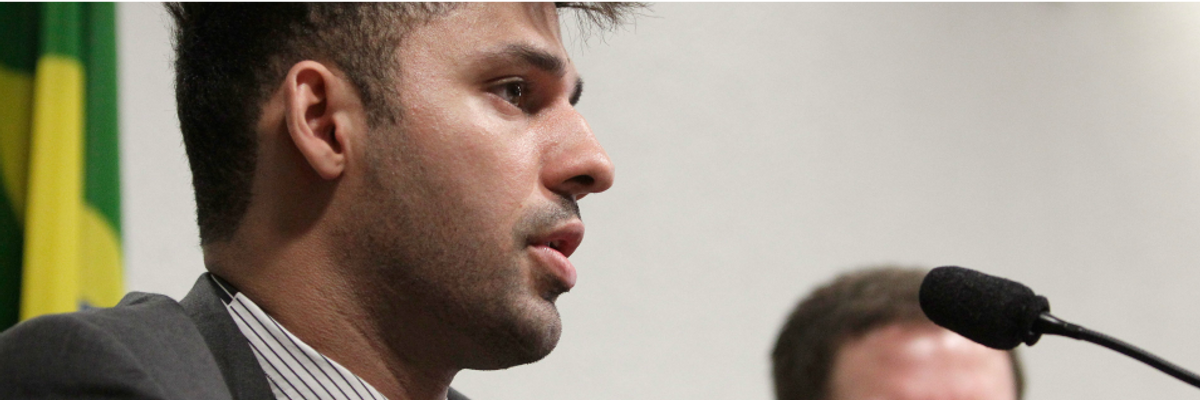In a landmark ruling, a British appeals court on Tuesday found that the UK's terrorism law violate the European Convention on Human Rights--a decision that came in the case of David Miranda, who was detained and searched at London's Heathrow airport in 2013 while carrying encrypted documents related to U.S. whistleblower Edward Snowden.
The ruling means government ministers will have to reevaluate a controversial provision in the Terrorism Act, known as Section 7, which gives law enforcement officers the power to stop, question, detain, and search people in airports and certain other transit areas, whether or not they are suspected of terrorism.
Individuals who refuse to answer questions or hand over any requested documents or information may be fined, imprisoned up to four months, or both.
"If journalists and their sources can have no expectation of confidentiality, they may decide against providing information on sensitive matters of public interest," the ruling states. "The court of appeal ruling rejects the broad definition of terrorism advanced by government lawyers. The correct legal definition of terrorism, the court of appeal has now ruled, requires some intention to cause a serious threat to public safety such as endangering life."
The decision was handed down by Lord Dyson, the court's most senior judge. "The stop power, if used in respect of journalistic information or material is incompatible with article 10 [freedom of expression] of the [European convention on human rights] because it is not 'prescribed by law'," Dyson said.
Miranda, who is the partner of journalist Glenn Greenwald, was interrogated for nine hours at Heathrow in August 2013 while transporting documents to Greenwald from journalist Laura Poitras, both of whom were reporting on the National Security Agency's (NSA) mass surveillance program. Miranda attempted last year to challenge his detention, but the High Court in London ruled that police had been justified in stopping and searching him.
The government argued at the time that Miranda met the definition of a terrorist because he was carrying documents that "would endanger people's lives" if released.
Tuesday's decision overturns at least part of that ruling.
On Twitter, Miranda
Thrilled%20with%20the%20court%20ruling!%20My%20purpose%20was%20to%20show%20UK's%20terrorism
law%20violates%20press%20freedoms.%20And%20journalism%20isn't%20"terrorism."%20We%20won!
--%20David%20Miranda%20(@davidmirandario)%20January%2019,%202016%20

